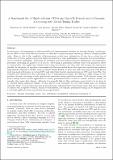Por favor, use este identificador para citar o enlazar a este item:
http://hdl.handle.net/10261/228604COMPARTIR / EXPORTAR:
 SHARE SHARE
 CORE
BASE CORE
BASE
|
|
| Visualizar otros formatos: MARC | Dublin Core | RDF | ORE | MODS | METS | DIDL | DATACITE | |

| Campo DC | Valor | Lengua/Idioma |
|---|---|---|
| dc.contributor.author | Petrovič, Filip | - |
| dc.contributor.author | Střelák, David | - |
| dc.contributor.author | Hozzová, Jana | - |
| dc.contributor.author | Ol’ha, Jaroslav | - |
| dc.contributor.author | Trembecký, Richard | - |
| dc.contributor.author | Benkner, Siegfried | - |
| dc.contributor.author | Filipovič, Jiří | - |
| dc.date.accessioned | 2021-02-04T12:20:46Z | - |
| dc.date.available | 2021-02-04T12:20:46Z | - |
| dc.date.issued | 2020-07 | - |
| dc.identifier.citation | Future Generation Computer Systems 108: 161-177 (2020) | - |
| dc.identifier.uri | http://hdl.handle.net/10261/228604 | - |
| dc.description | © 2020. | - |
| dc.description.abstract | In recent years, the heterogeneity of both commodity and supercomputers hardware has increased sharply. Accelerators, such as GPUs or Intel Xeon Phi co-processors, are often key to improving speed and energy efficiency of highly-parallel codes. However, due to the complexity of heterogeneous architectures, optimization of codes for a certain type of architecture as well as porting codes across different architectures, while maintaining a comparable level of performance, can be extremely challenging. Addressing the challenges associated with performance optimization and performance portability, autotuning has gained a lot of interest. Autotuning of performance-relevant source-code parameters allows to automatically tune applications without hard coding optimizations and thus helps with keeping the performance portable. In this paper, we introduce a benchmark set of ten autotunable kernels for important computational problems implemented in OpenCL or CUDA. Using our Kernel Tuning Toolkit, we show that with autotuning most of the kernels reach near-peak performance on various GPUs and outperform baseline implementations on CPUs and Xeon Phis. Our evaluation also demonstrates that autotuning is key to performance portability. In addition to offline tuning, we also introduce dynamic autotuning of code optimization parameters during application runtime. With dynamic tuning, the Kernel Tuning Toolkit enables applications to re-tune performance-critical kernels at runtime whenever needed, for example, when input data changes. Although it is generally believed that autotuning spaces tend to be too large to be searched during application runtime, we show that it is not necessarily the case when tuning spaces are designed rationally. Many of our kernels reach near peak-performance with moderately sized tuning spaces that can be searched at runtime with acceptable overhead. Finally we demonstrate, how dynamic performance tuning can be integrated into a real-world application from cryo-electron microscopy domain. | - |
| dc.description.sponsorship | The work was supported from European Regional Development Fund-Project “CERIT Scientific Cloud” (No.CZ.02.1.01/0.0/0.0/16_013/0001802). The project that gave rise to these results received the support of a fellowship from ”la Caixa” Foundation (ID 100010434). The fellowship code is LCF/BQ/DI18/11660021. This project has received funding from the European Union’s Horizon 2020 research and innovation programme under the Marie Skodowska-Curie grant agreement No. 713673. The Spanish Ministry of Economy and Competitiveness through Grants BIO2016-76400-R(AEI/FEDER, UE). “Comunidad Autónoma de Madrid” through Grant: S2017/BMD-3817. | - |
| dc.language | eng | - |
| dc.publisher | Elsevier | - |
| dc.relation | info:eu-repo/grantAgreement/EC/H2020/713673 | - |
| dc.relation | info:eu-repo/grantAgreement/MINECO/Plan Estatal de Investigación Científica y Técnica y de Innovación 2013-2016/BIO2016-76400-R | - |
| dc.relation | S2017/BMD-3817/TomoXLiver-CM | - |
| dc.relation.isversionof | Preprint | - |
| dc.rights | openAccess | - |
| dc.subject | Dynamic autotuning | - |
| dc.subject | OpenCL | - |
| dc.subject | Cuda | - |
| dc.subject | Performance optimization | - |
| dc.subject | Autotuning benchmark set | - |
| dc.title | A benchmark set of highly-efficient CUDA and OpenCL kernels and its dynamic autotuning with Kernel Tuning Toolkit | - |
| dc.type | artículo | - |
| dc.identifier.doi | 10.1016/j.future.2020.02.069 | - |
| dc.relation.publisherversion | https://doi.org/10.1016/j.future.2020.02.069 | - |
| dc.identifier.e-issn | 0167-739X | - |
| dc.date.updated | 2021-02-04T12:20:46Z | - |
| dc.rights.license | https://creativecommons.org/licenses/by-nc-nd/4.0/ | - |
| dc.contributor.funder | European Commission | - |
| dc.contributor.funder | Fundación la Caixa | - |
| dc.contributor.funder | Comunidad de Madrid | - |
| dc.relation.csic | Sí | - |
| dc.identifier.funder | http://dx.doi.org/10.13039/501100000780 | es_ES |
| dc.identifier.funder | http://dx.doi.org/10.13039/100012818 | es_ES |
| dc.type.coar | http://purl.org/coar/resource_type/c_6501 | es_ES |
| item.fulltext | With Fulltext | - |
| item.openairecristype | http://purl.org/coar/resource_type/c_18cf | - |
| item.openairetype | artículo | - |
| item.cerifentitytype | Publications | - |
| item.grantfulltext | open | - |
| Aparece en las colecciones: | (CNB) Artículos | |
Ficheros en este ítem:
| Fichero | Descripción | Tamaño | Formato | |
|---|---|---|---|---|
| Benchmark_Petrovic_Preprint2020.pdf | 1,33 MB | Adobe PDF |  Visualizar/Abrir |
CORE Recommender
SCOPUSTM
Citations
16
checked on 17-abr-2024
WEB OF SCIENCETM
Citations
12
checked on 22-feb-2024
Page view(s)
126
checked on 23-abr-2024
Download(s)
138
checked on 23-abr-2024
Google ScholarTM
Check
Altmetric
Altmetric
Este item está licenciado bajo una Licencia Creative Commons

